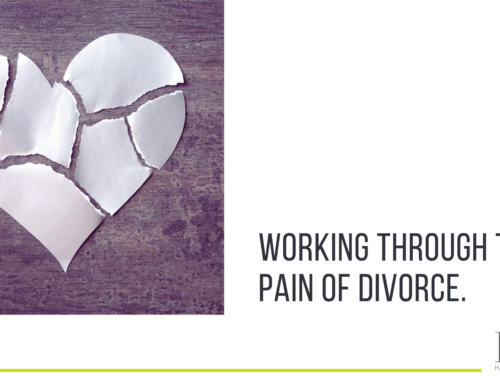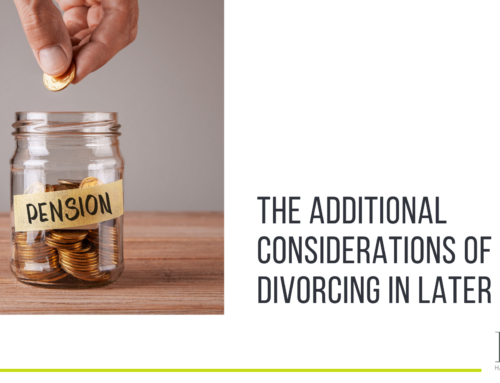Divorcing couples are becoming increasingly aware that it is in their best interests to obtain a clean break when they split up. This is to prevent any future claims on either party’s wealth or earnings and can be agreed at the time of divorce.
What is a clean break and how do I get one?
A clean break effectively draws a line under the division of assets when a couple divorces, preventing the parties from making any future claims on each other’s property, income or pensions at a later date.
A “consent order” is made by a judge in divorce proceedings, where both parties have agreed their financial settlement and consent to an order being made. This can be done without the need for a court hearing.
The parties file a draft of the consent order containing the terms of their financial settlement, together with a brief financial statement that sets out their current financial position.
The papers then go before a judge who will look at the order to see if it is acceptable legally. If the judge accepts the order, it is then approved and sent to the parties to implement.
The order becomes legally binding when the Decree Absolute has been granted in the divorce proceedings.
Why should you secure a consent order?
When a couple marry, this automatically gives them a right to claim financial provision from the other in the event that their marriage breaks down. Even if you don’t have many assets at the time of your divorce, it is still important to get a clean break because your spouse’s ability to claim for financial provision from you can continue to exist even after you have divorce.
One high profile case, Wyatt v Vince, involved a woman who made a financial claim against her ex-husband who had been penniless when they were together but had made a multi-million pound fortune after their divorce.
They divorced in 1992 and the case was heard by the Supreme Court more than two decades later.
A clean break order prevents the possibility of such future financial claims.
When a clean break may not be suitable
There are situations where one spouse has given up a career to bring up the couple’s children and may still have childcare responsibilities that prevent them returning to work.
A clean break is still possible in such cases but may be deferred, for example until the children reach a certain age.
In some situations a wife who has spent many years looking after home and family may never be able to achieve the income levels required to maintain her current standard of living.
In these cases it may not be in the best interests of her to have a complete clean break but it is still important to get a financial settlement ratified by the court so that it is binding on the parties.
Making sure of a clean break
If a clean break is appropriate for your circumstances then the only way to guarantee that there are no future claims made against you by your former spouse or civil partner is to get a court order. Without this, there is always a possibility that you could be faced with a claim for financial provision such as maintenance or lump sum orders. Only an order submitted to court and approved by a judge can protect you against this situation. It is usually straightforward to put in place and could save considerable uncertainty and legal expense in future.
How to get a consent order
A consent order is a legal document that should be drafted by an experienced legal professional to ensure it is legally binding.
There are specific rules as to how an order should be drafted and what can and cannot be included in one.
The consent order can be applied for once the Decree Nisi has been granted in the divorce proceedings and not before.
How we can help
A consent order is binding and if one party is suggesting it, the other should seek proper legal advice from an experienced family solicitor in case there is anything pending that could affect the value of the couple’s assets.
If the order is made without securing accurate valuations of property, pensions and business interests, one spouse could miss out on a fair settlement and will not have the option to renegotiate at a later date.
Here at Harrogate Family Law we can assist you in compiling all relevant financial details and records prior to presenting a consent order for ratification by the courts.
We believe in bringing a positive and cost-effective contribution to your divorce settlement by offering outstanding advice on separation and divorce law. Call us today on 01423 594680.
Andrew Meehan is an experienced family lawyer specialising in complex divorces involving significant or hidden assets, as well as cases involving children.
He is recommended for family law by both Chambers 2019 (York, Hull and surrounding regions) and the Legal 500 2018 (Leeds/West Yorkshire and North Yorkshire region).
Everyone’s circumstances are different and this article is provided by way of general information only and must not be replied upon. If you require legal advice on a family law issue, please feel free to contact us by emailing enquiries@harrogatefamilylaw.co.uk.






